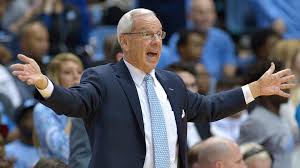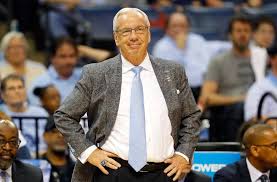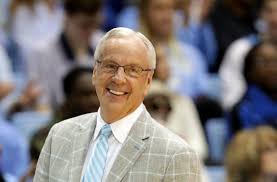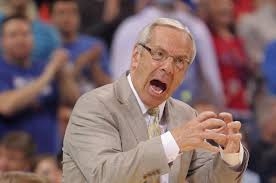Hall of Fame North Carolina Coach Roy Williams, in his book with Tim Crothers, Hard Work, described how he applies this principle in his pre practice huddles:
"Our 'Thought for the Day' is a concept I learned from Coach Smith. I have a file of over 1,000 inspirational phrases that I've collected from airline in-flight magazines, NBA scouts, PGA golfers, and lots of fans who have sent them to me in the mail: See the rocks in your path not as obstacles, but as opportunities to climb higher or If you want to leave footprints in the sands of time — you better wear work shoes. On the first day of preseason practice, the Thought for the Day is always the same: It's amazing how much can be accomplished when nobody cares who gets the credit.
Sometimes I'll spend 20 minutes before a practice picking the thought that I believe best pertains to the mindset of my team at that moment. Then during the first huddle of practice every day we spend a few minutes talking about it. We'll read the thoughtand then I'll ask the players, "How does that relate to basketball?" And then I'll ask them, "Okay now, how does that relate to life?""
The method Coach Williams uses with his Thought for the Day is more effective than just posting the thought on a bulletin board because by having his players read the thought and then asking them, "How does that relate to basketball?" and "Okay now, how does that relate to life?" he gets them to collaborate and then act on the idea.
Coach Williams described how he uses the same type of approach in his pre-game talk:
"When all the players are dressed and seated, I go in. I've seen NBA teams write 40 things up on the board before a game. I'll write down no more than three because that's all I think my players can absorb. I might write, five guys run both ways as fast as you can or be strong with the ball, nothing casual or the team that wins the battle of the boards wins the game.
After that meeting, the players go out to the court for warm-ups and I meet them back in the locker room seven minutes before the game starts. I'll cover my three points of emphasis again and then we come together, kneel on the floor, put our hands together, and I say the Lord's Prayer. I always add three words at the end. I say, "For thine is the kingdom, the power, and the glory, for ever and ever. Together please, Lord. Amen." Then I tell them, "Play hard, play smart, play together," and I send them out for a final warm-up."




 RSS Feed
RSS Feed